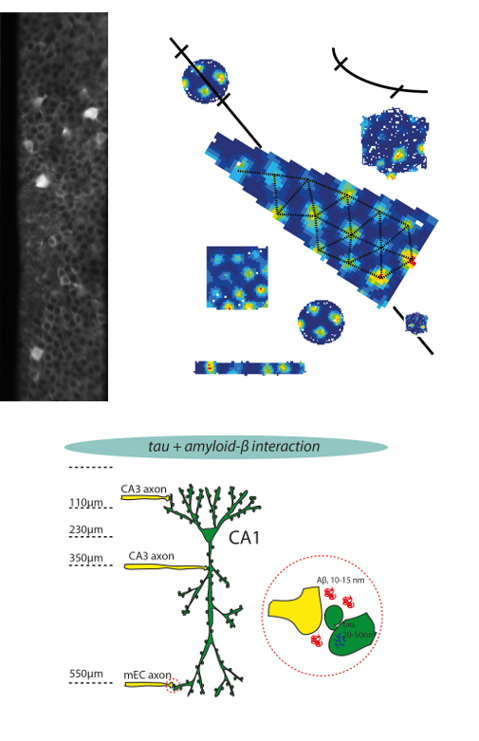Dementia is a set of symptoms that may include memory loss and difficulty with a wide array of cognitive abilities (language, problem-solving and thinking). These symptoms are often subtle at the beginning, but as an individual ages the symptoms might become severe enough to impair daily functioning. Dementia is a common condition, and it usually occurs in people over the age of 65. Dementia develops when the brain is damaged by diseases, most notably Alzheimer’s’ disease.
Alzheimer’s disease is the most common type of dementia, affecting 850,000 people in the UK. The risk of Alzheimer’s disease increases with age, affecting an estimated 1 in 14 people over the age of 65. The human brain is made out of billions of neurons, which are connected to each other. Alzheimer’s disease disrupts these connections because it causes a build up of abnormal protein structures called “plaques” and “tangles" around the neurons. Over time this disruption causes neurons to die and the brain tissue is lost.
Symptoms of Alzheimer’s disease progress slowly, and sometimes it can be difficult to recognise if there is a problem. However, identifying Alzheimer’s disease early on is key to receiving successful treatment and slowing down disease progression. With hAge, we are hoping to establish a cost efficient and user-friendly method which would allow medical practitioners to diagnose patients without having to perform an extensive battery of tests.
If you are interested in learning more about our research, please visit our website:
Krupic Lab